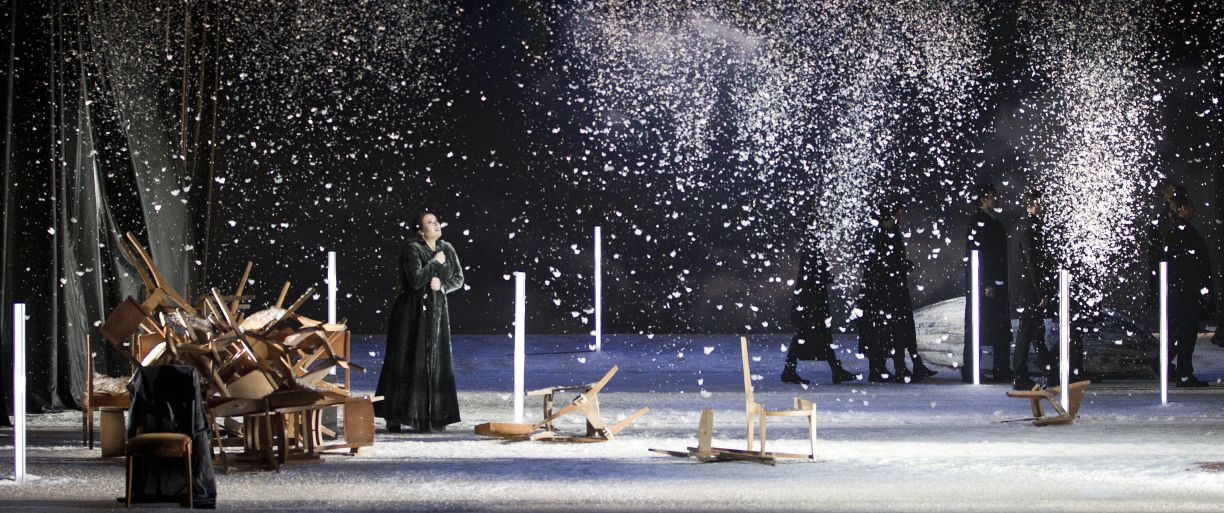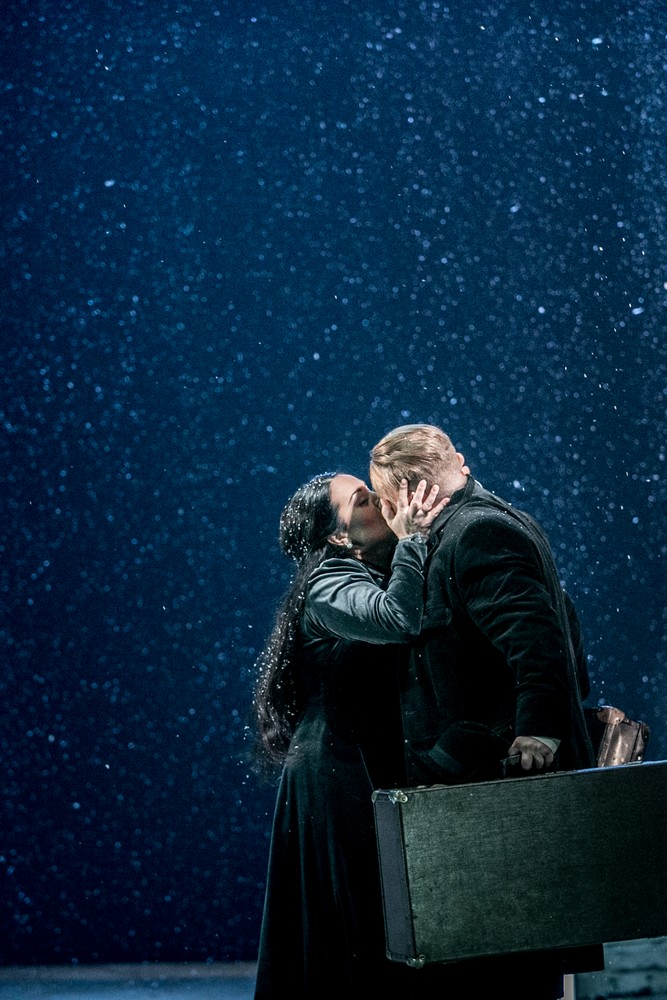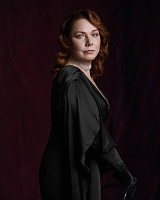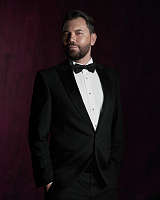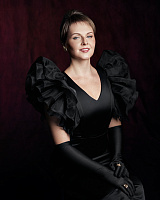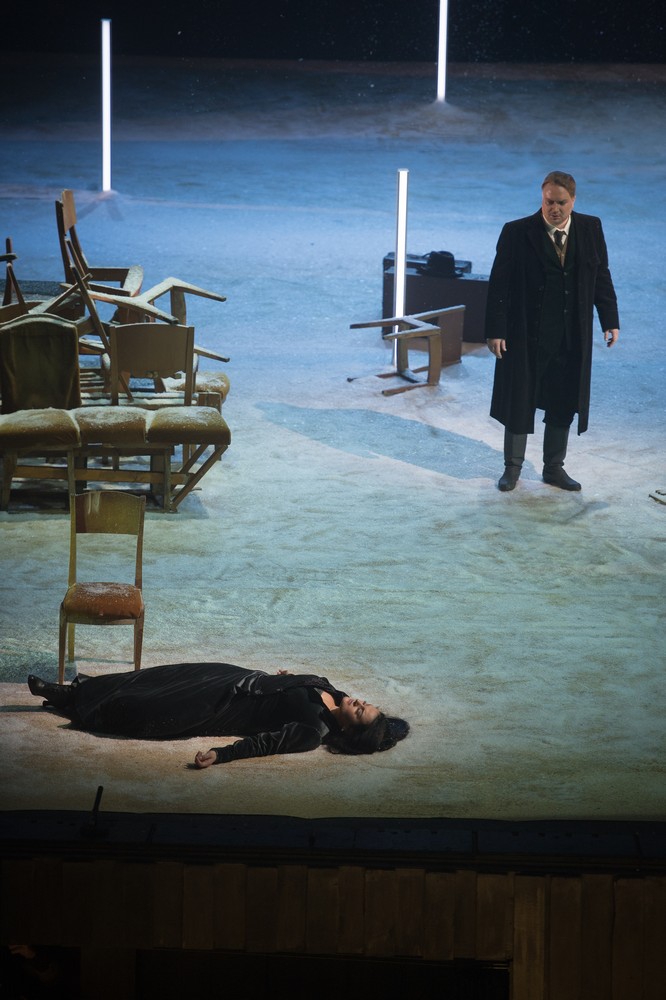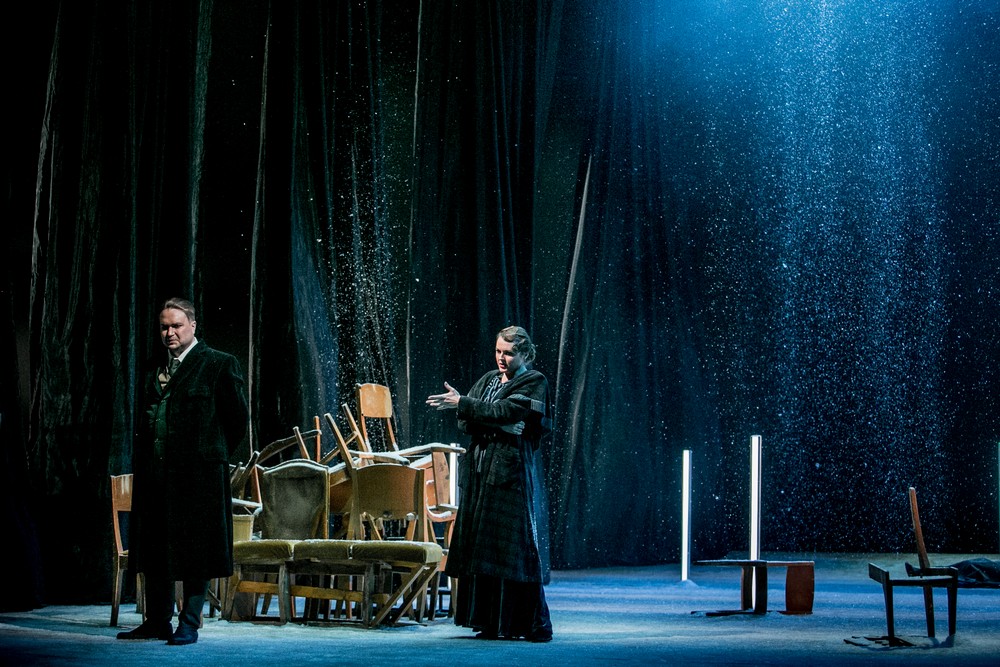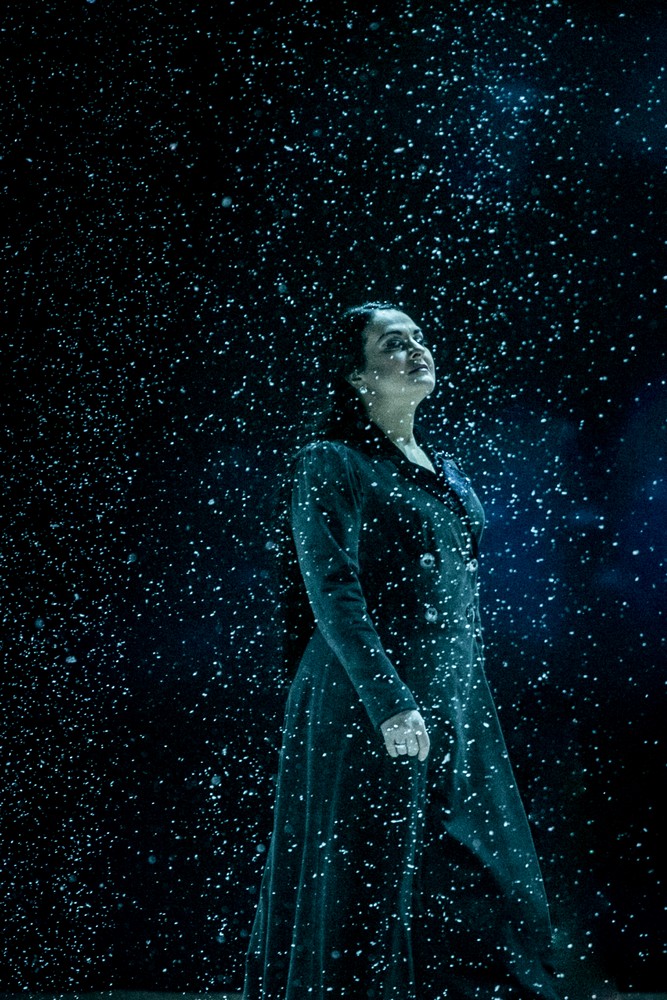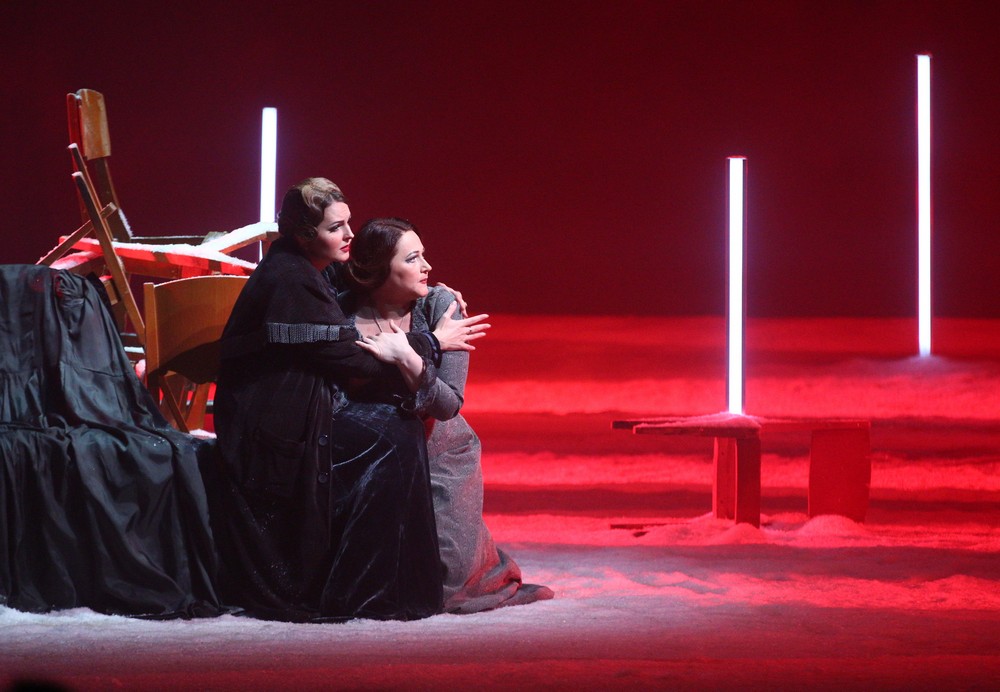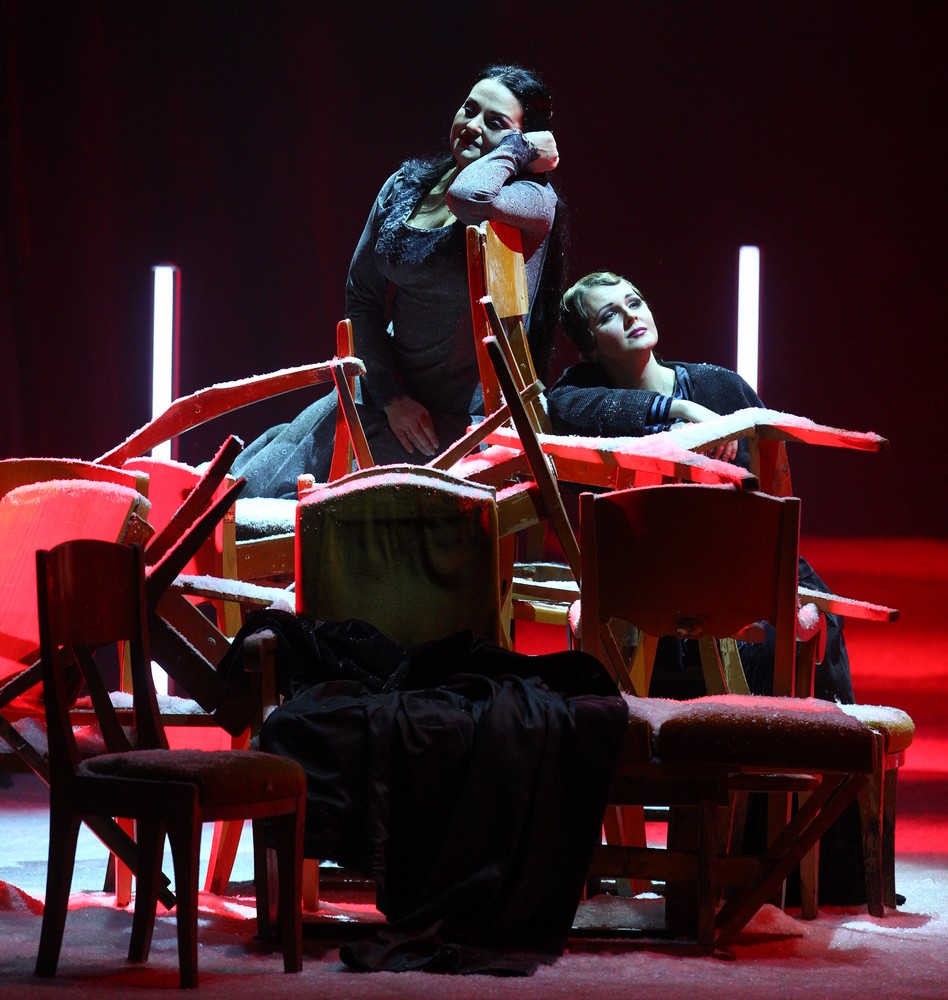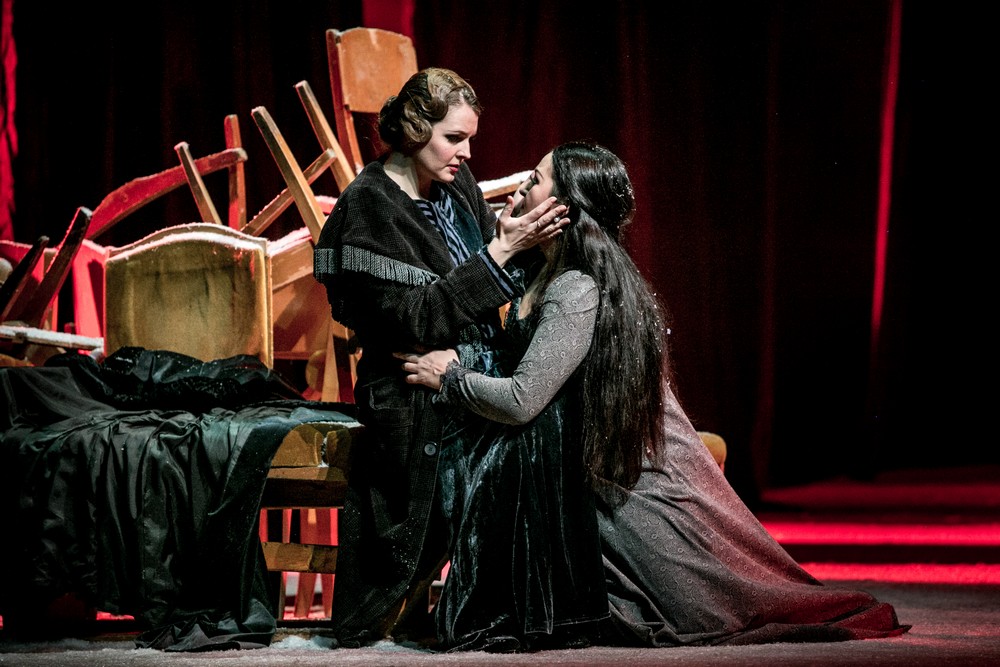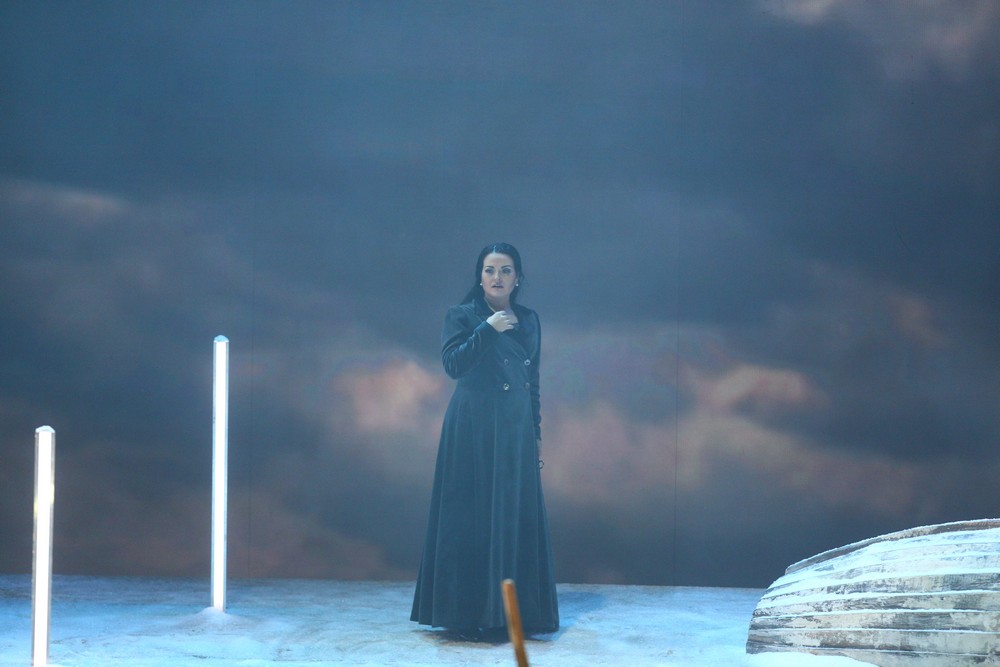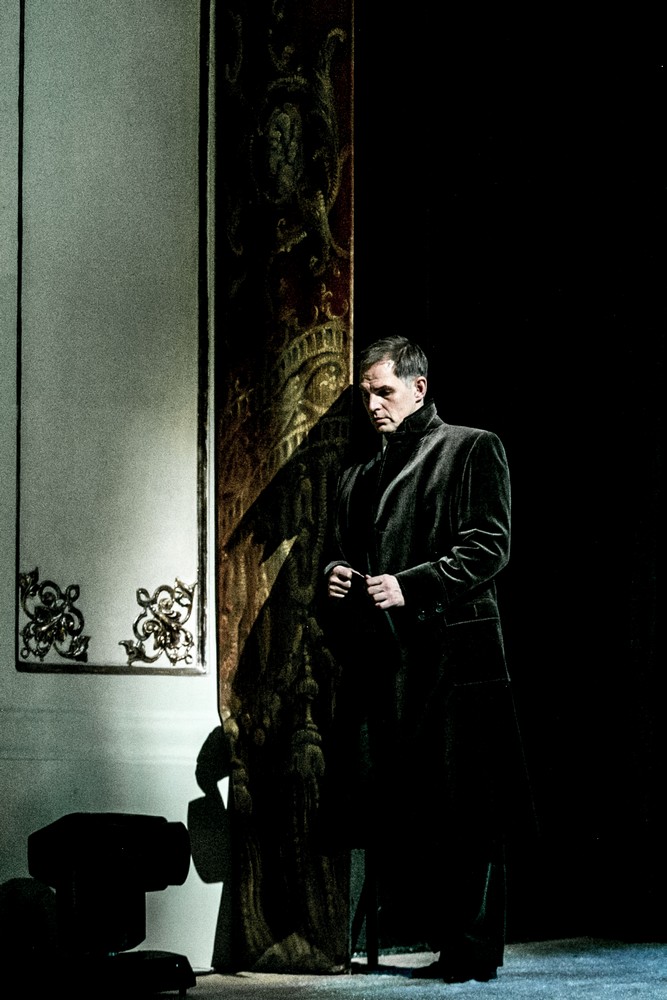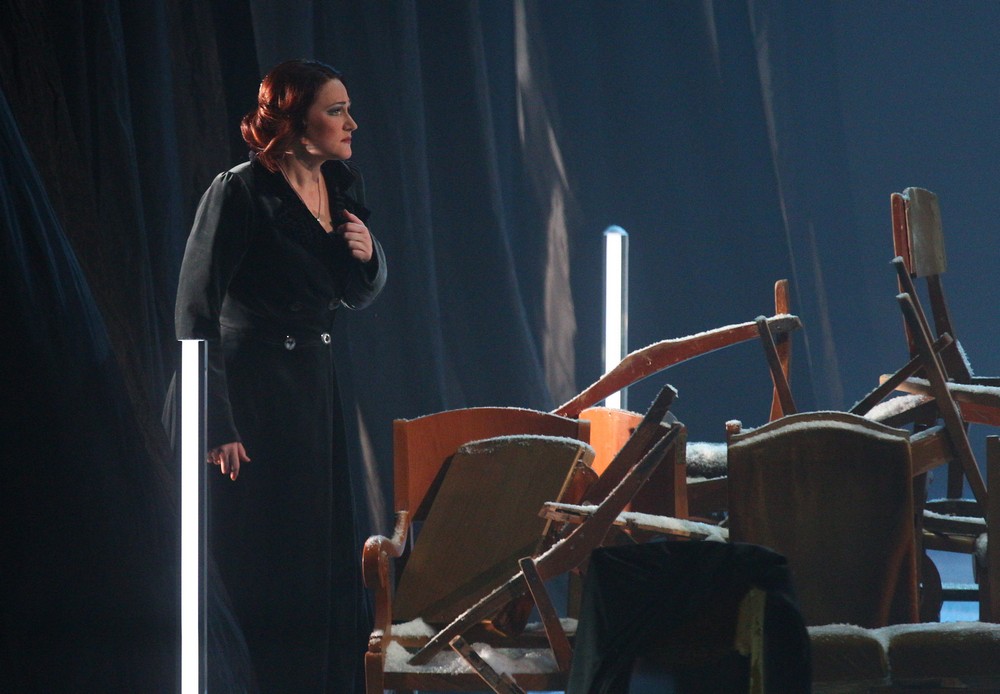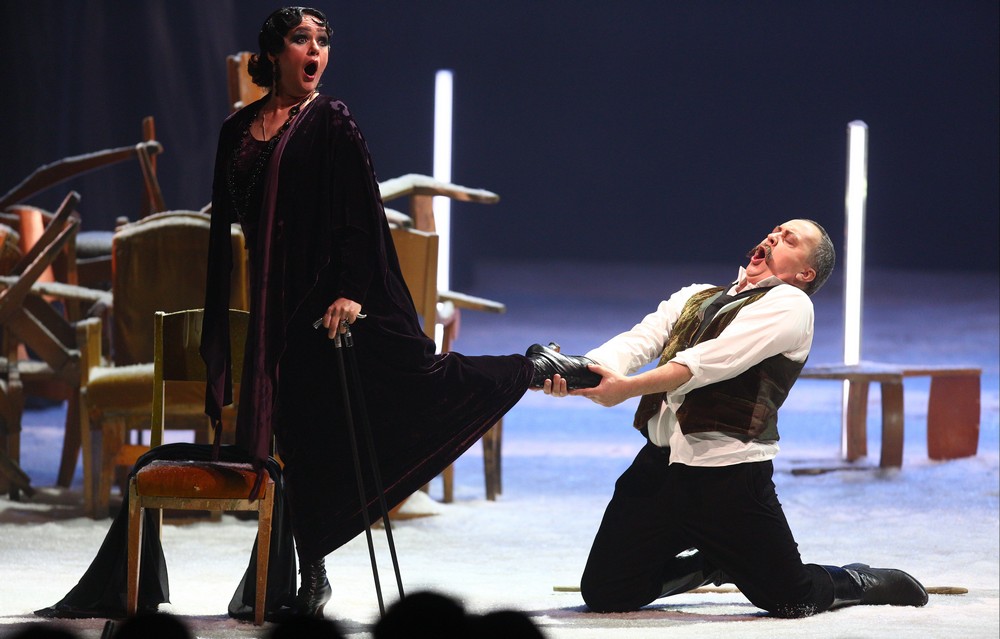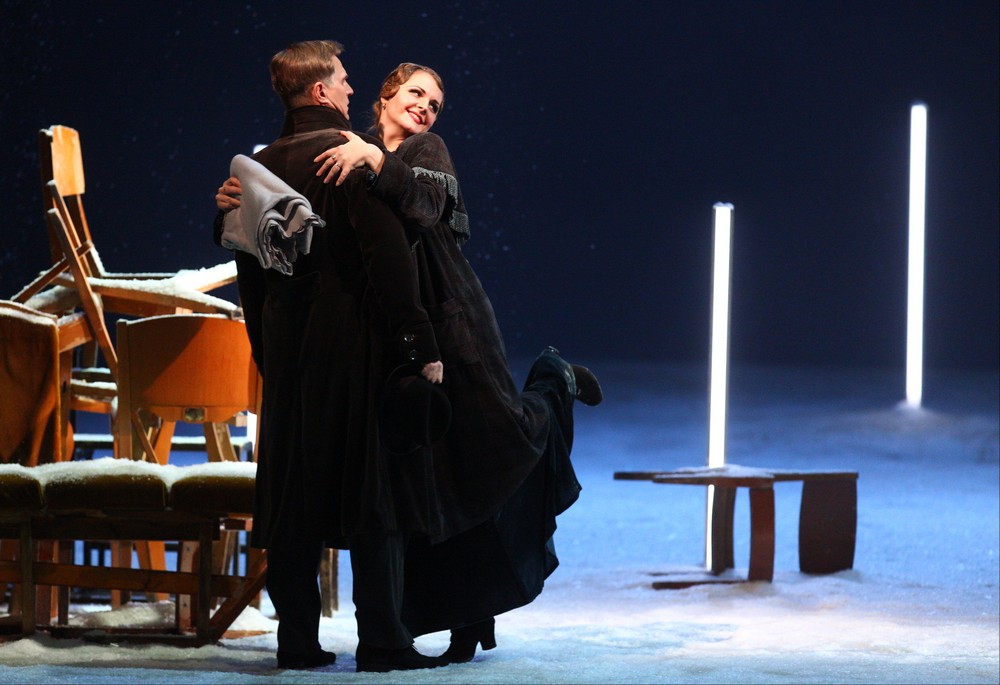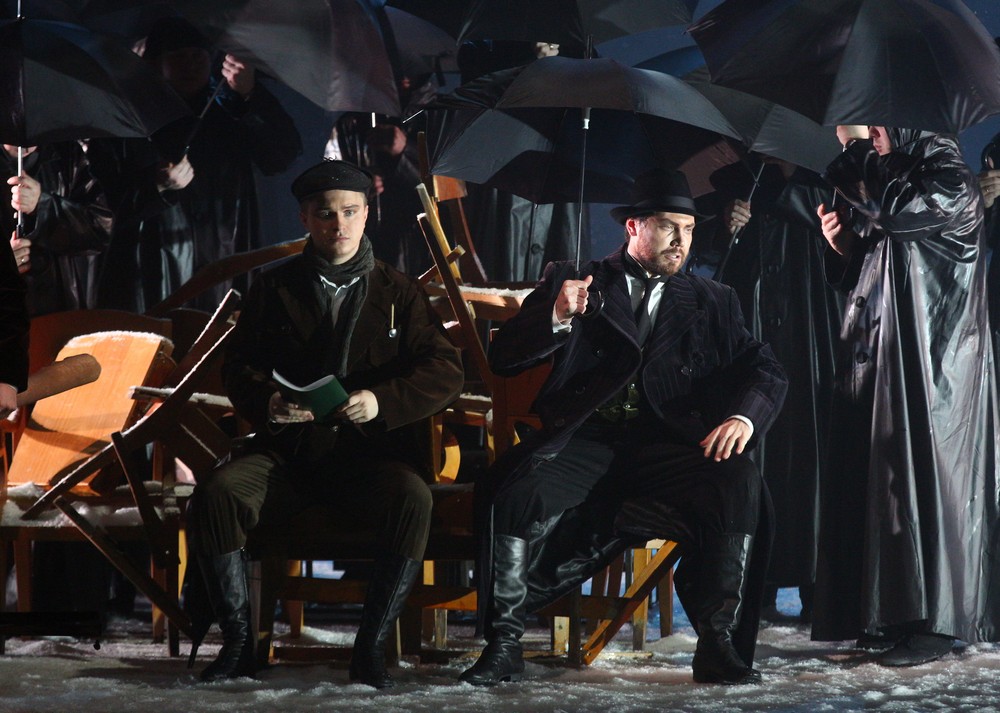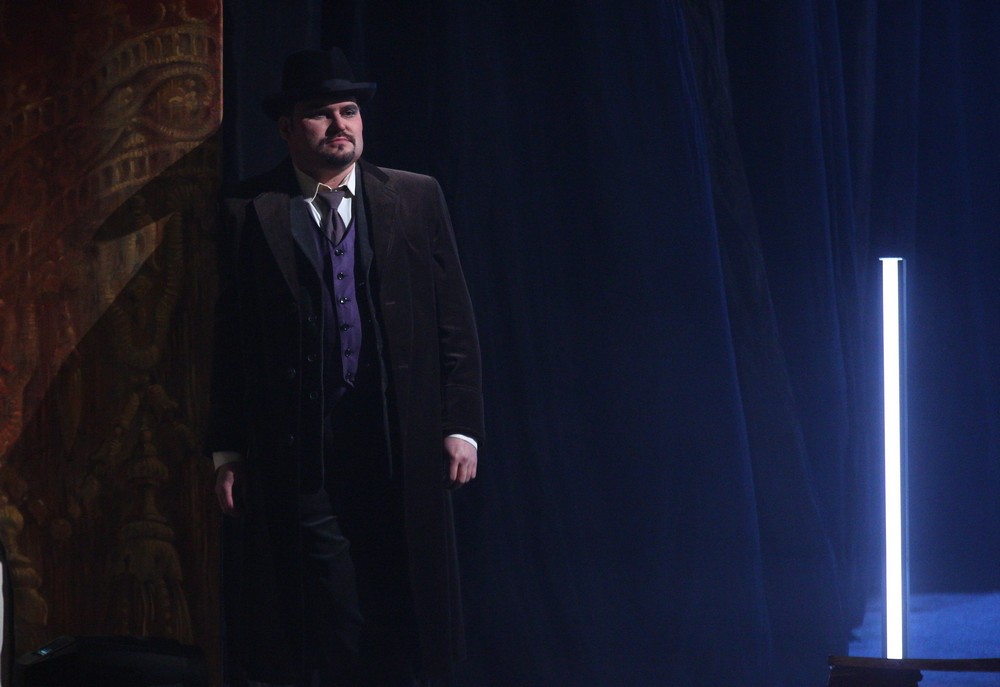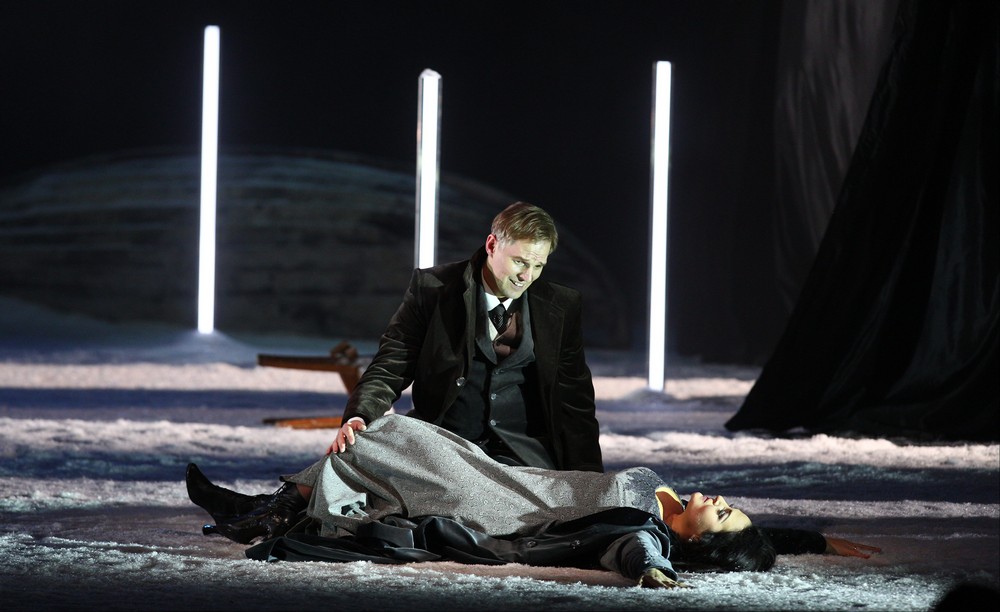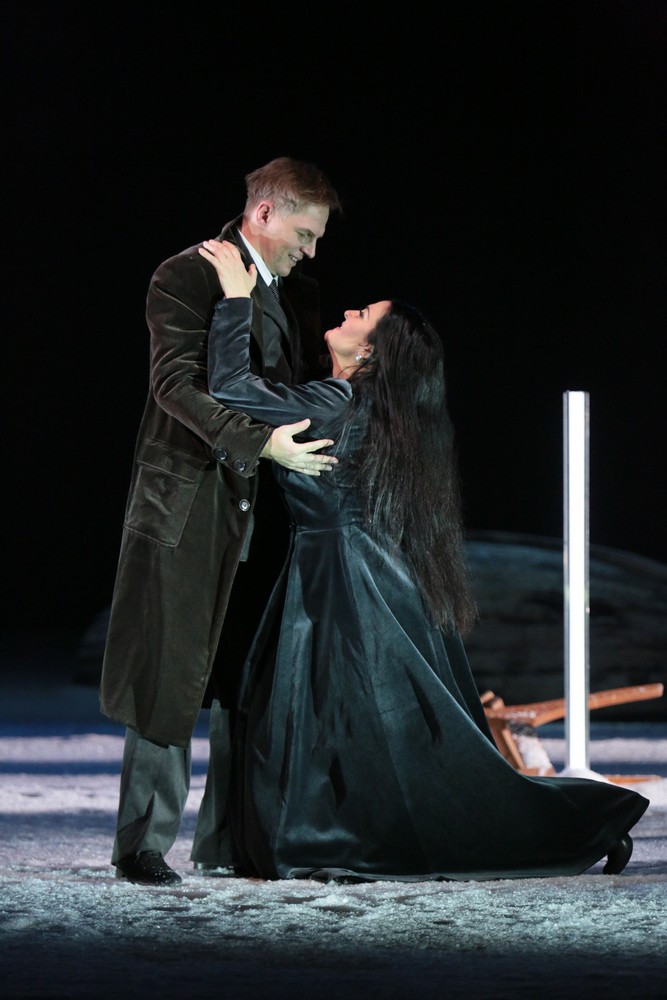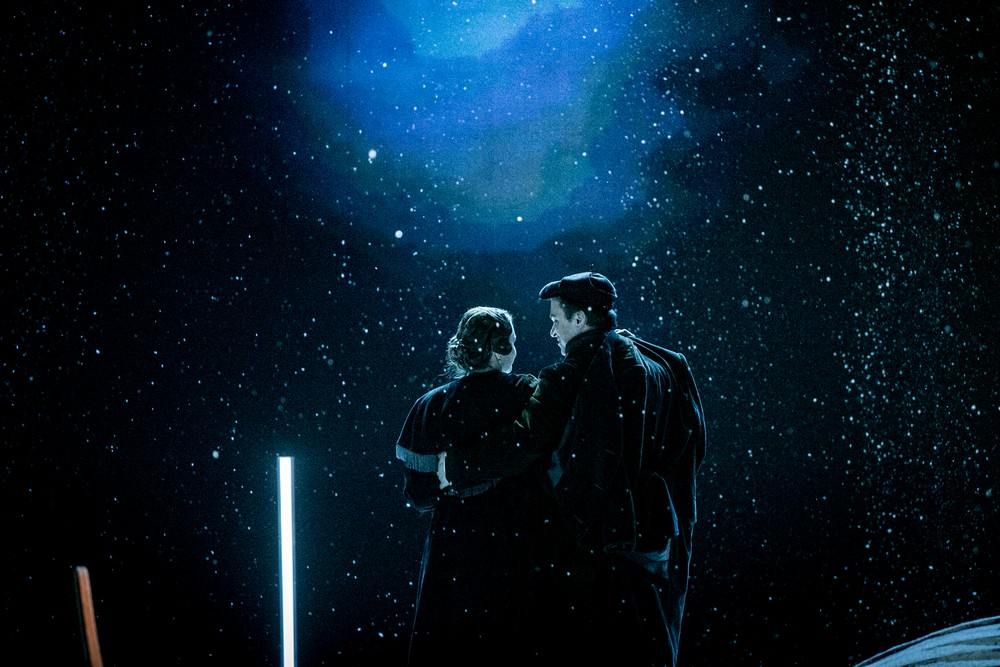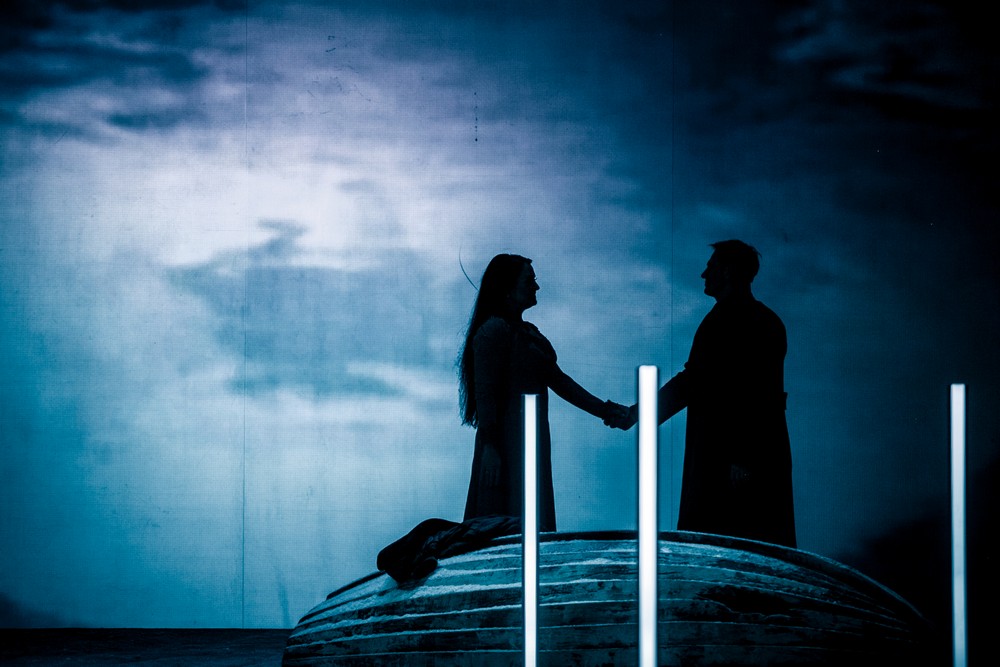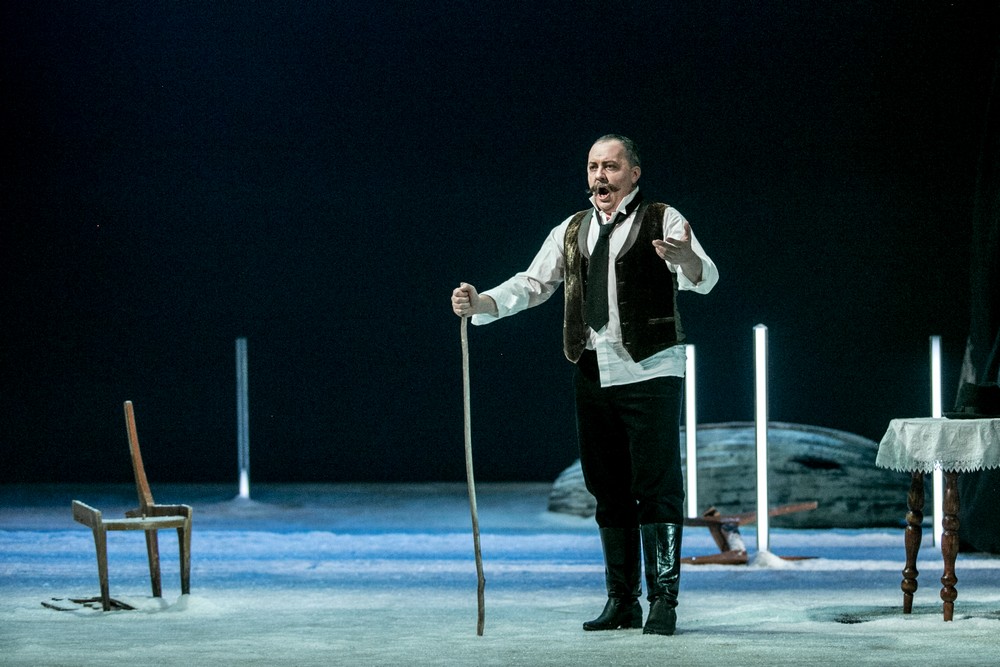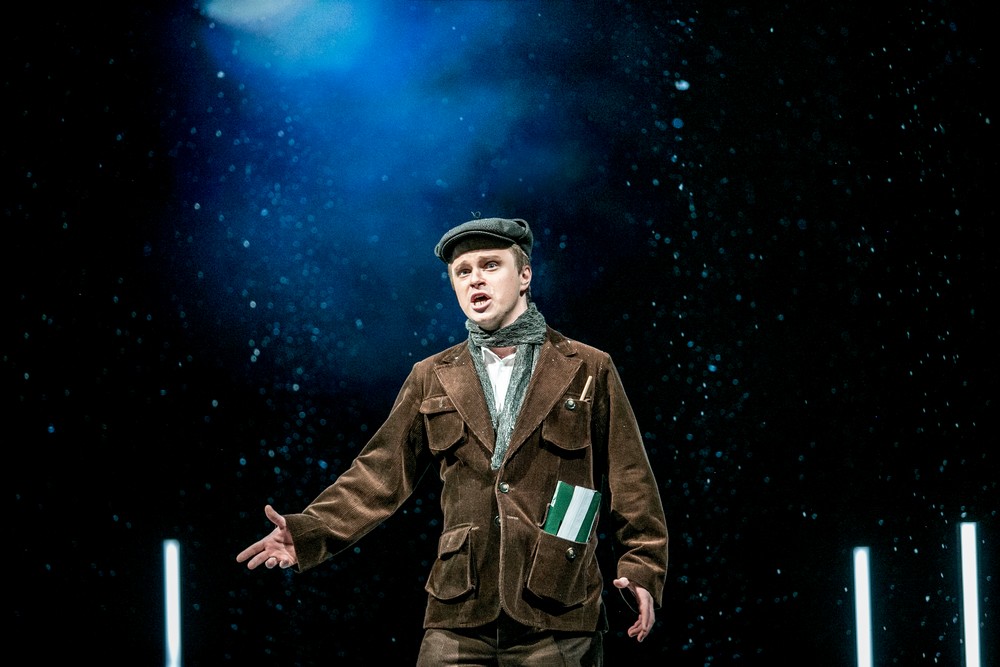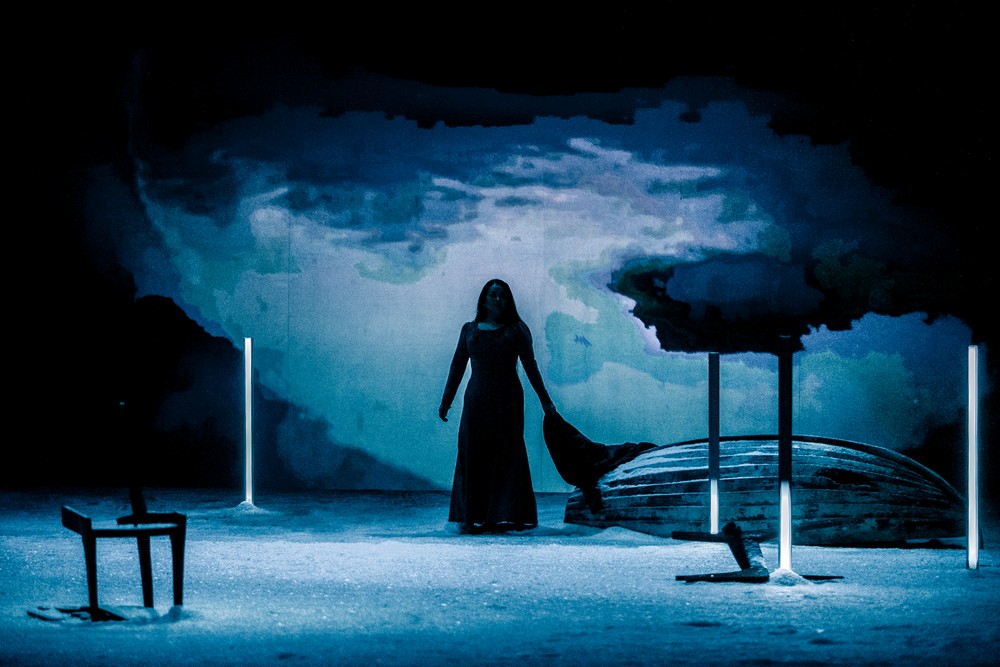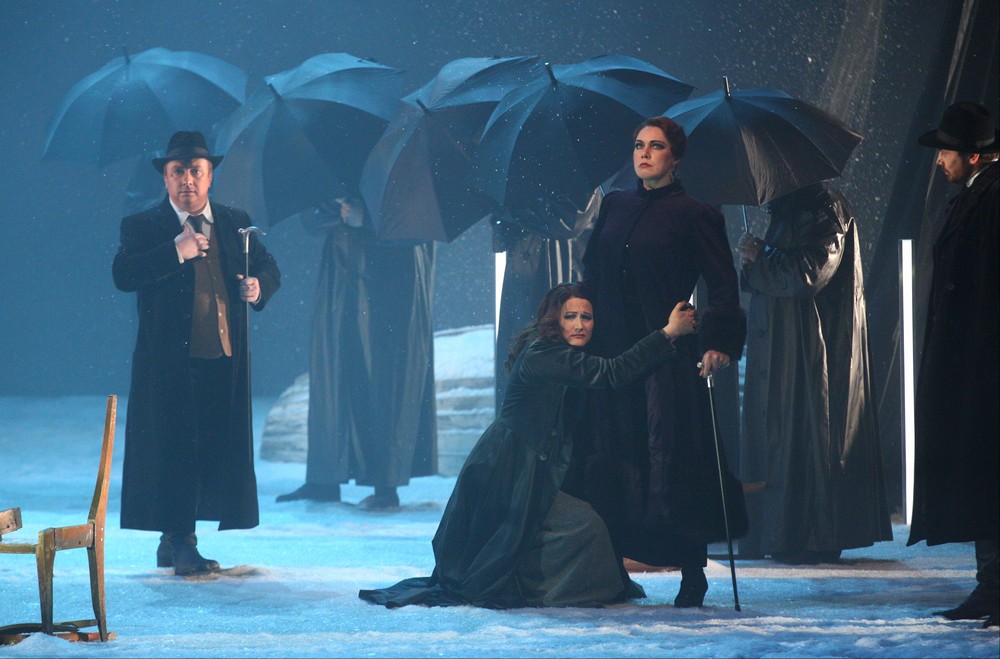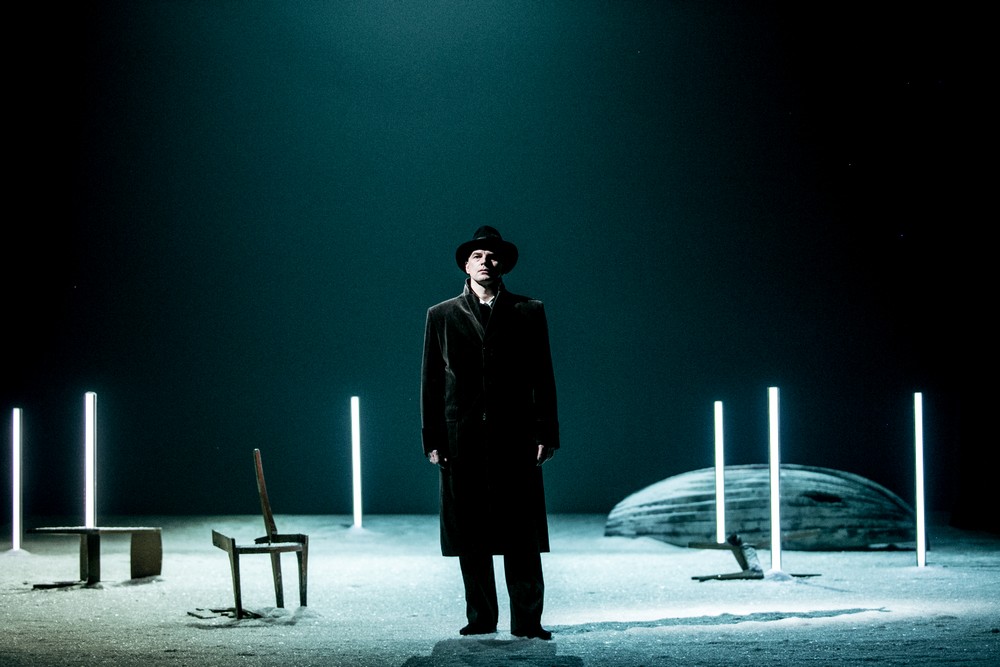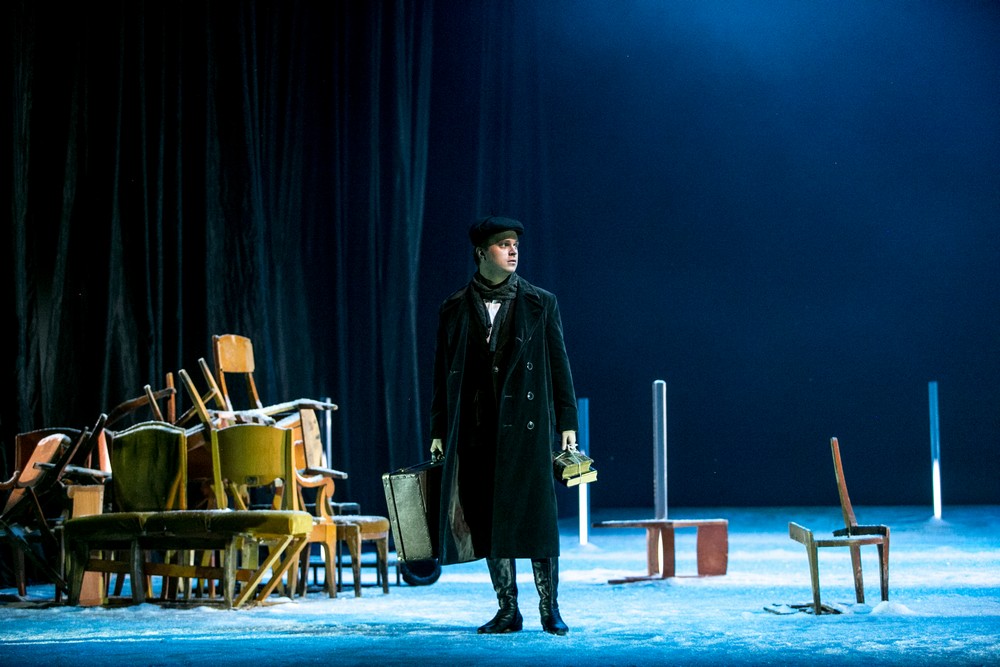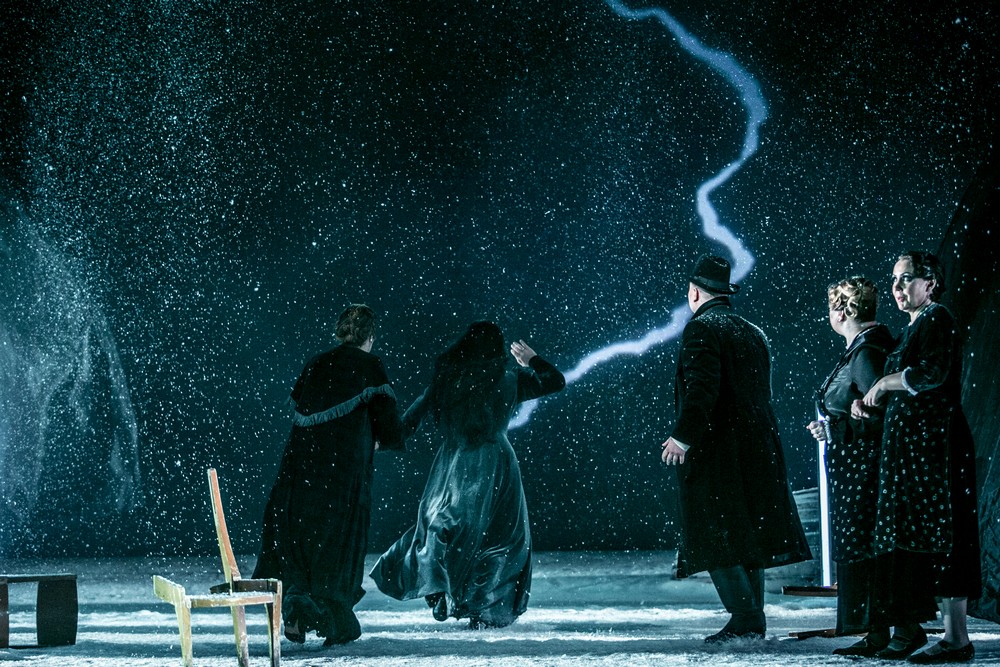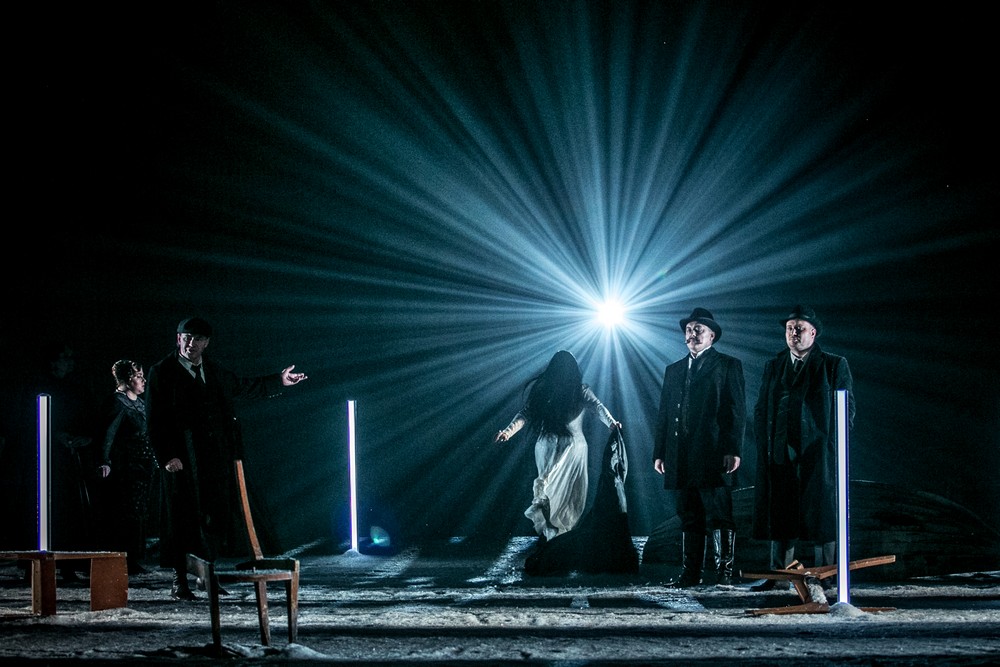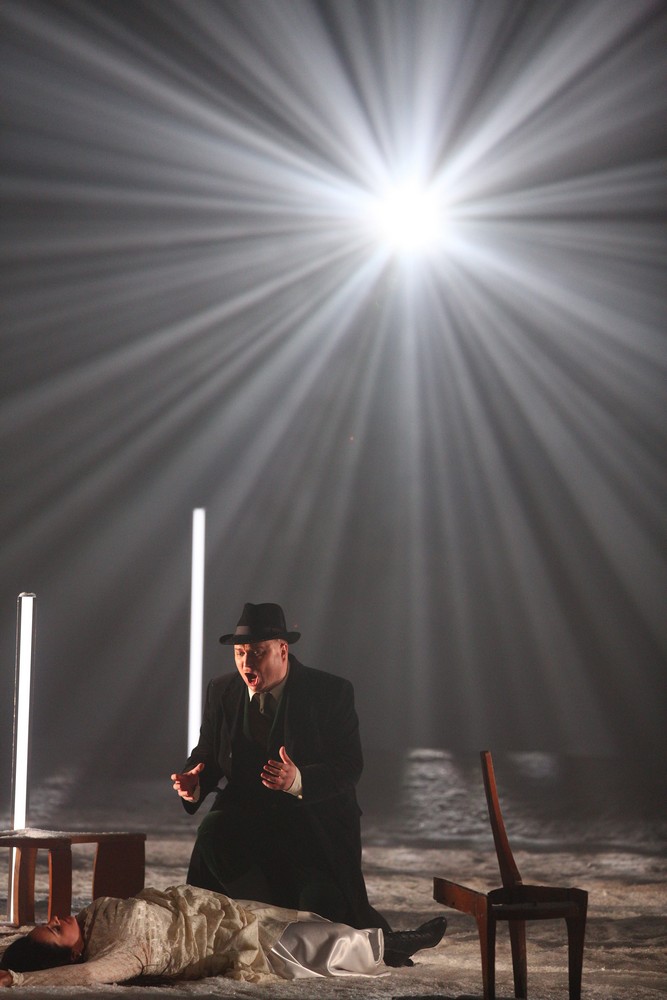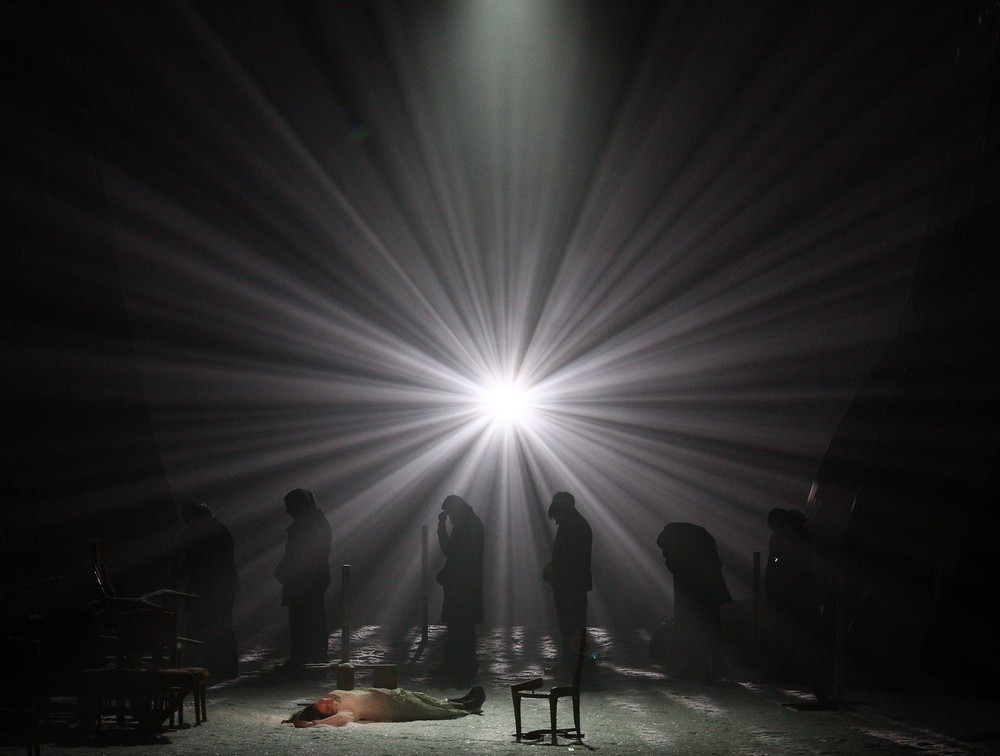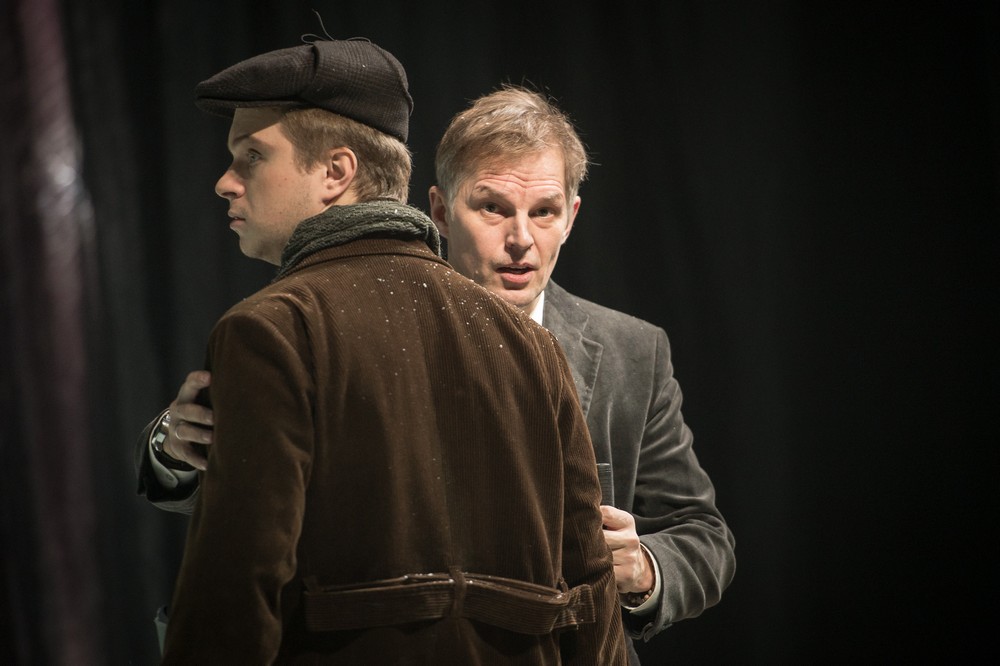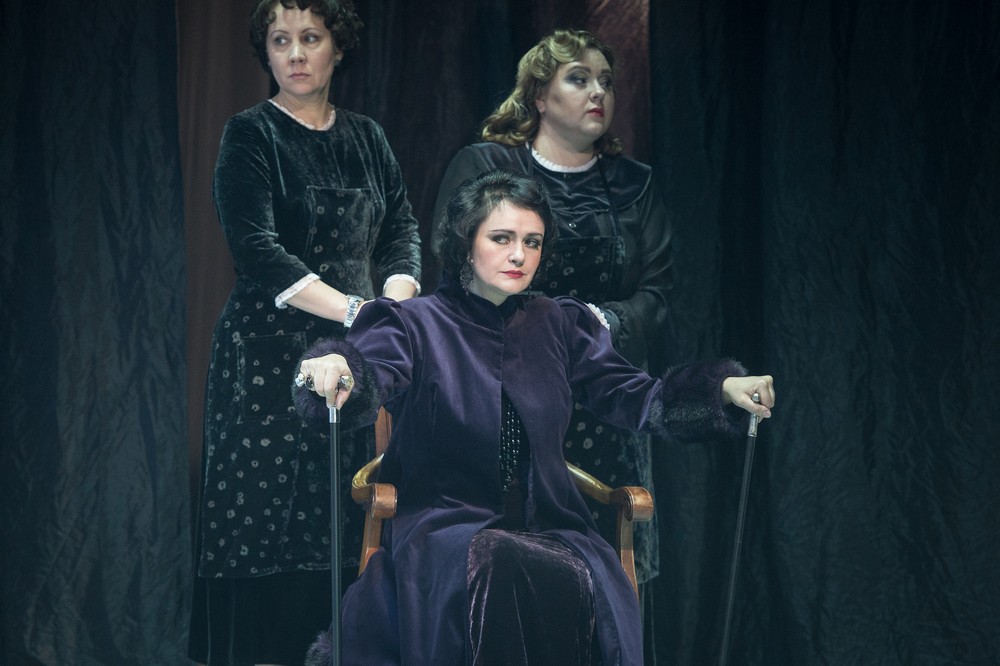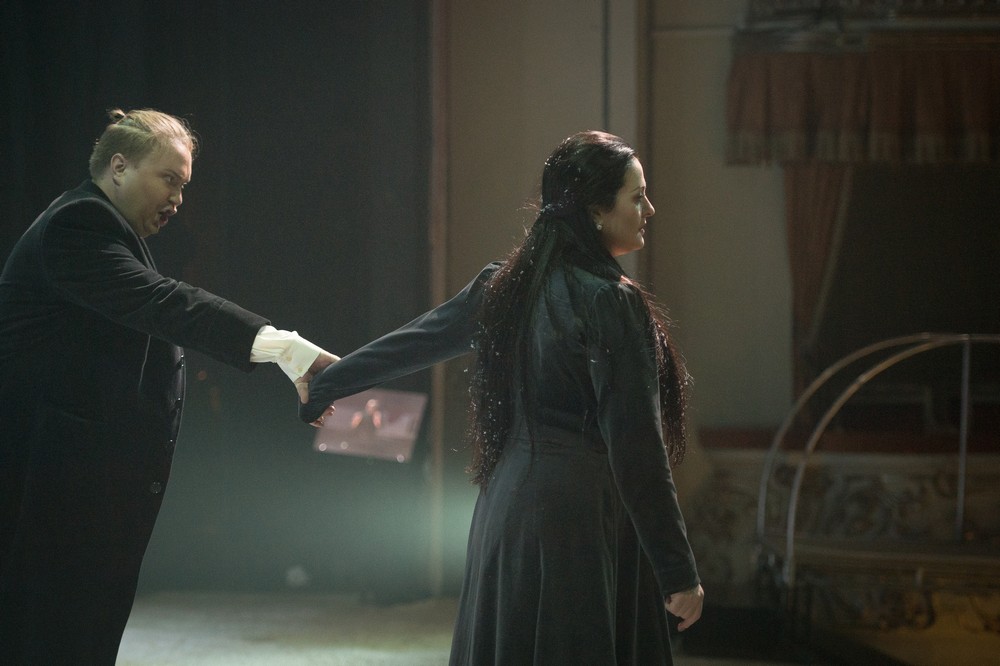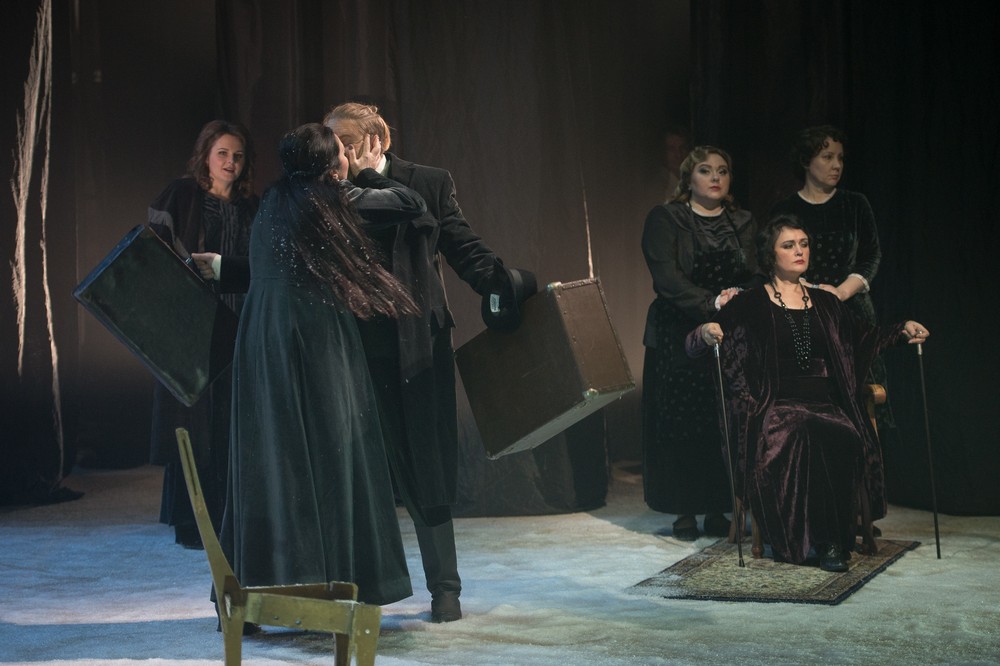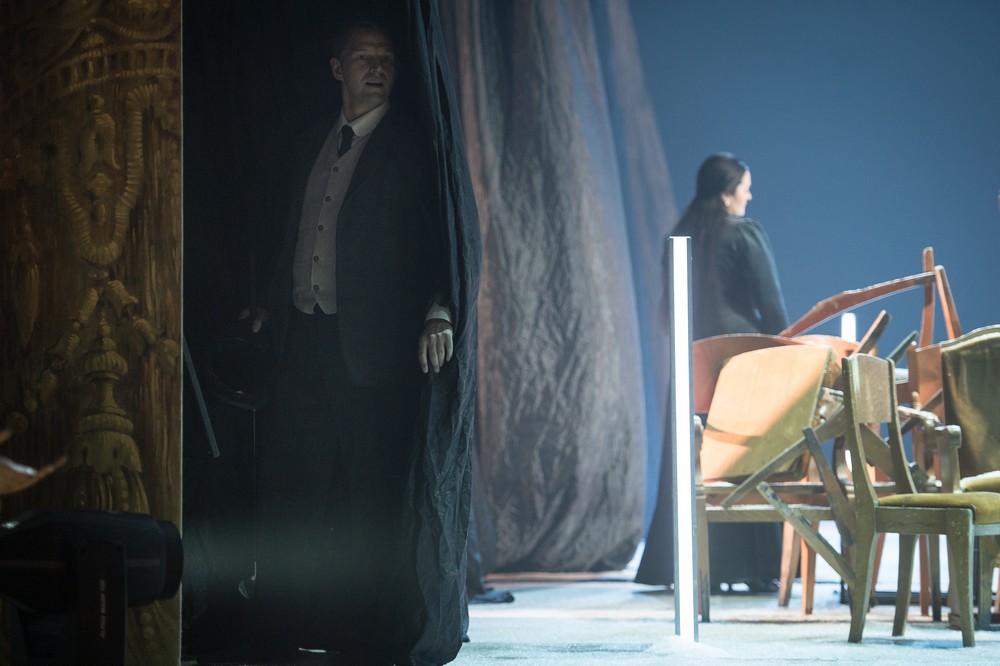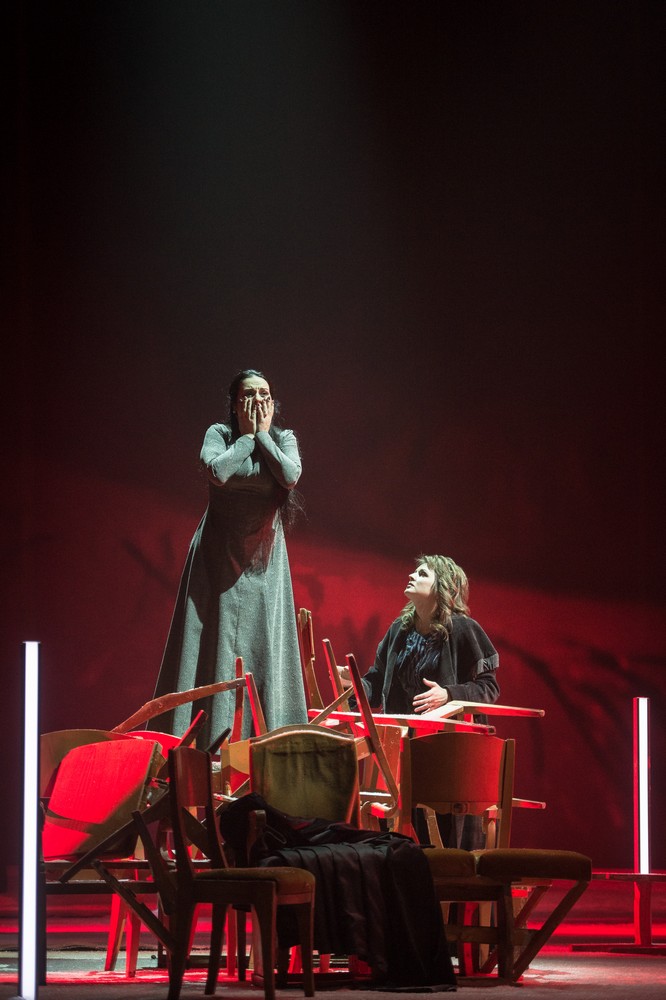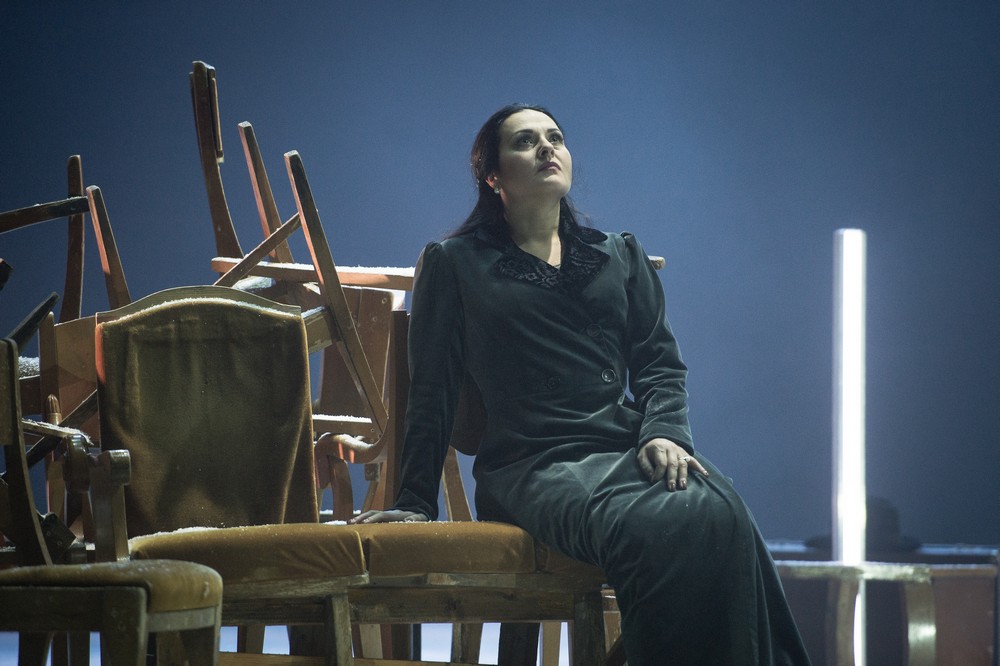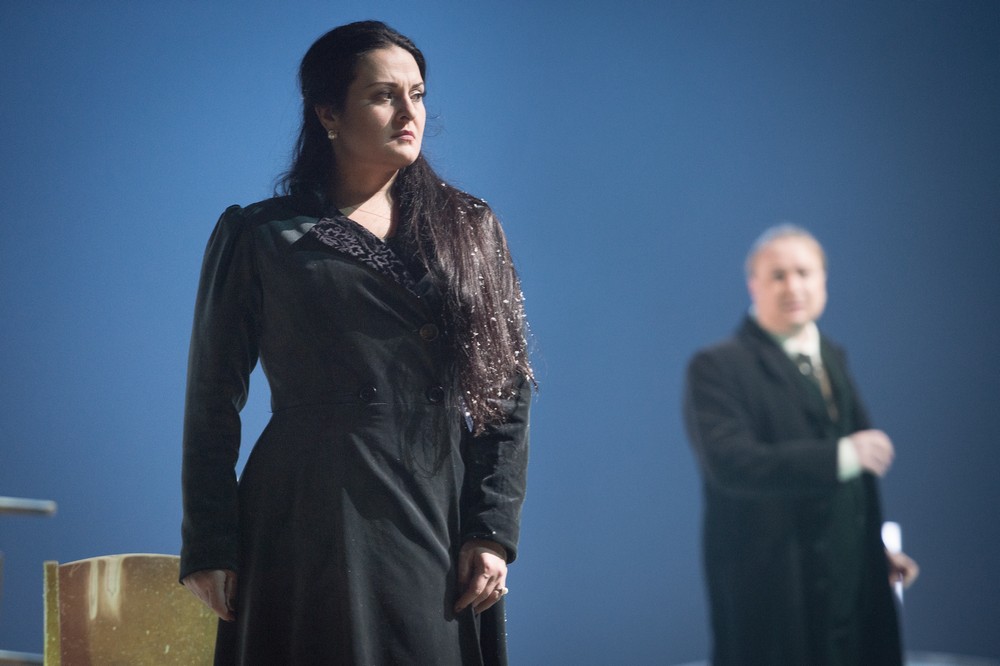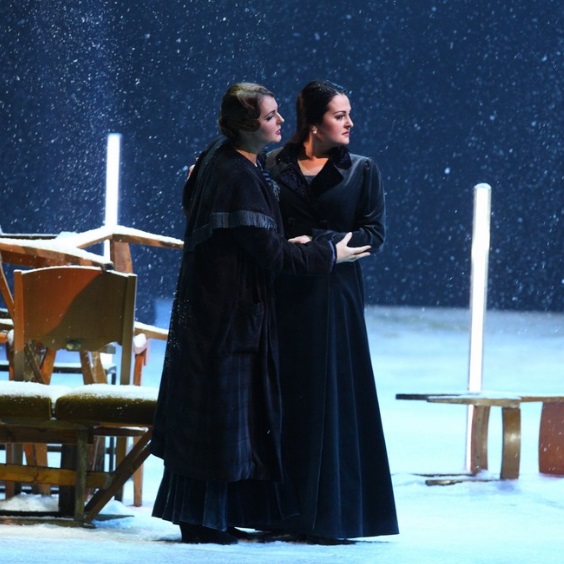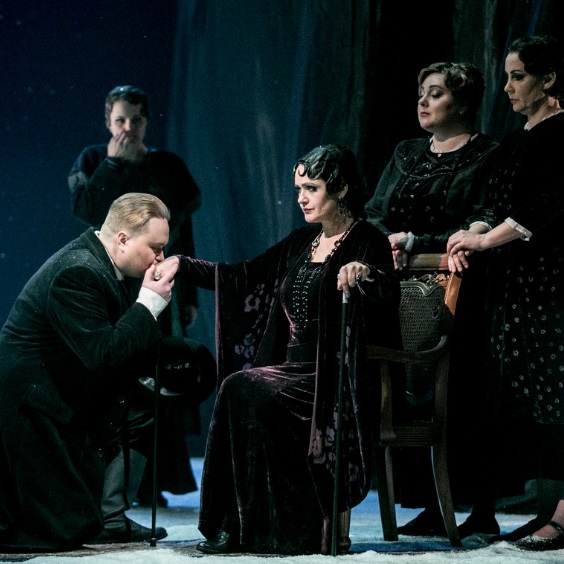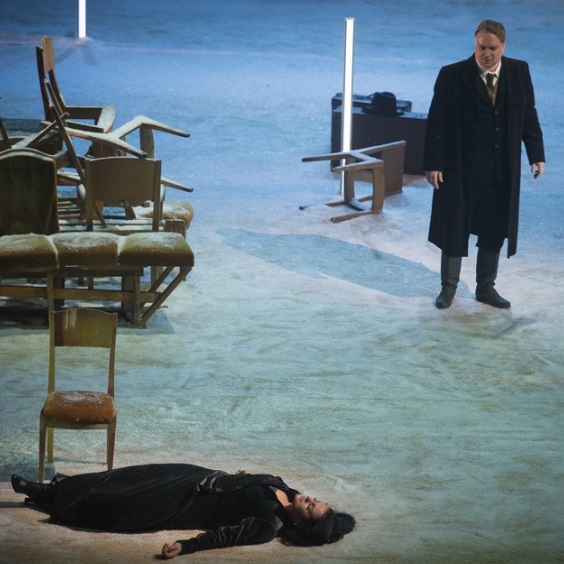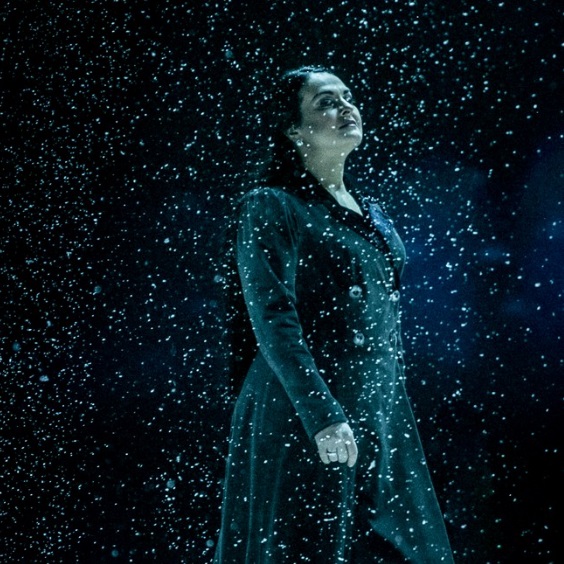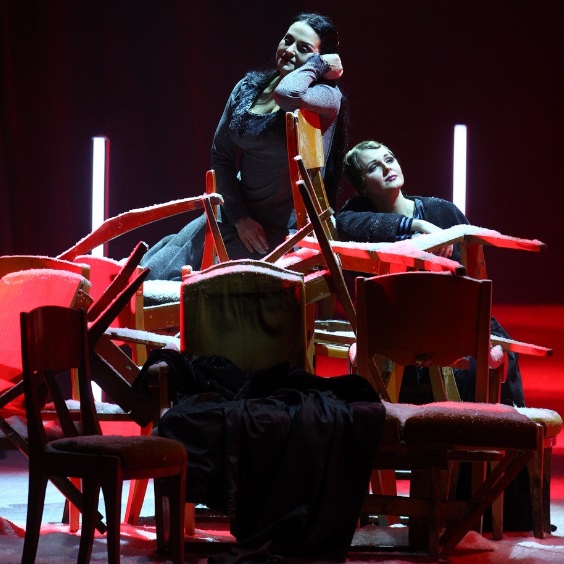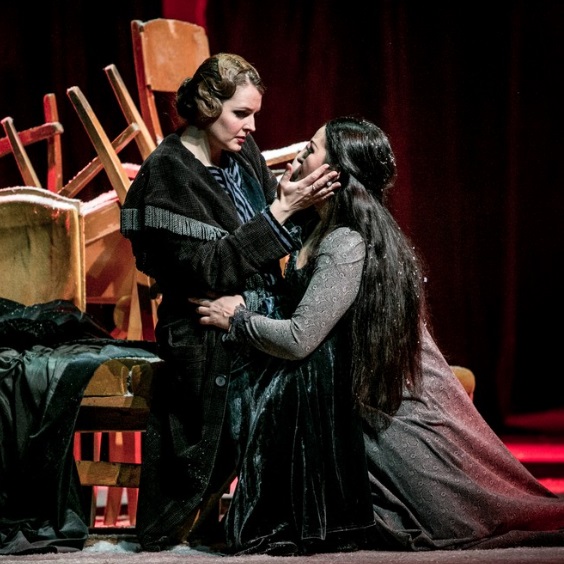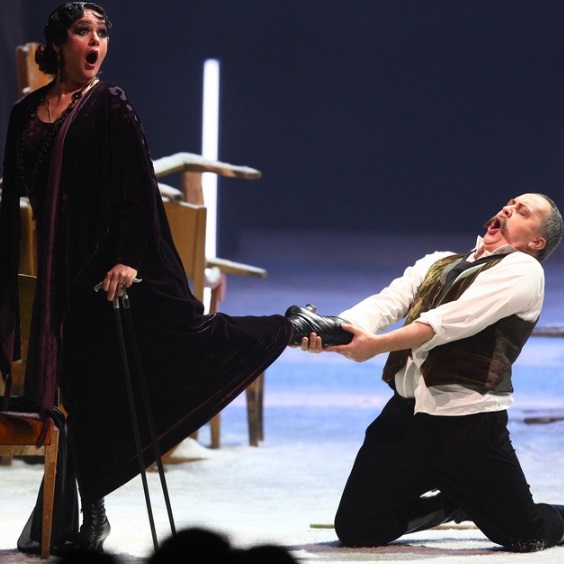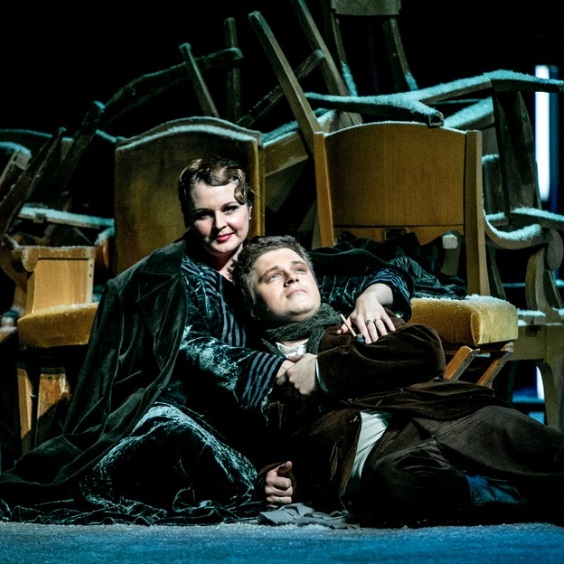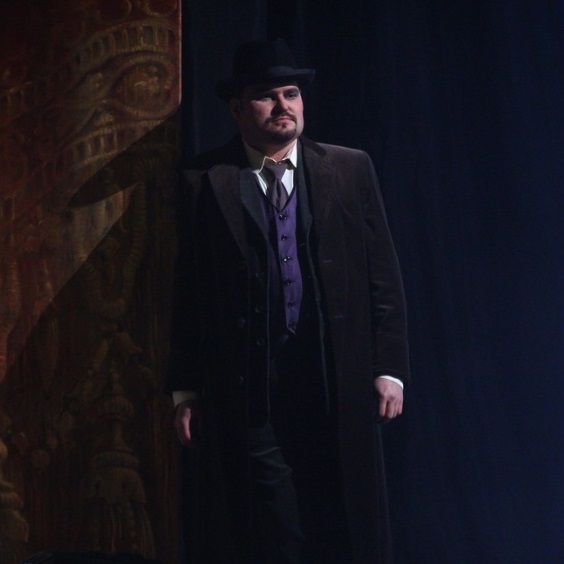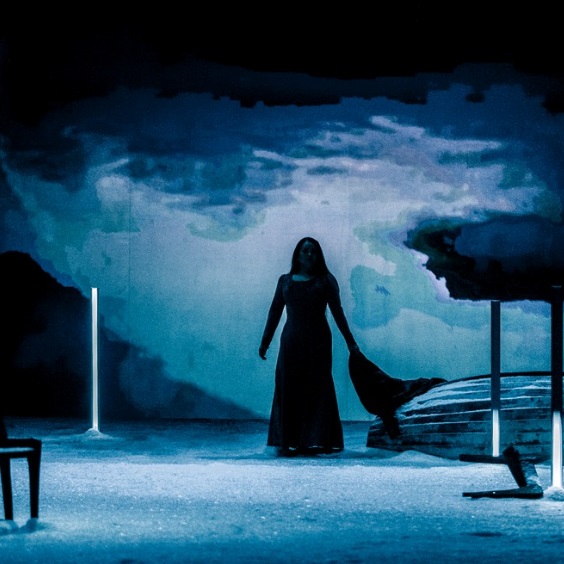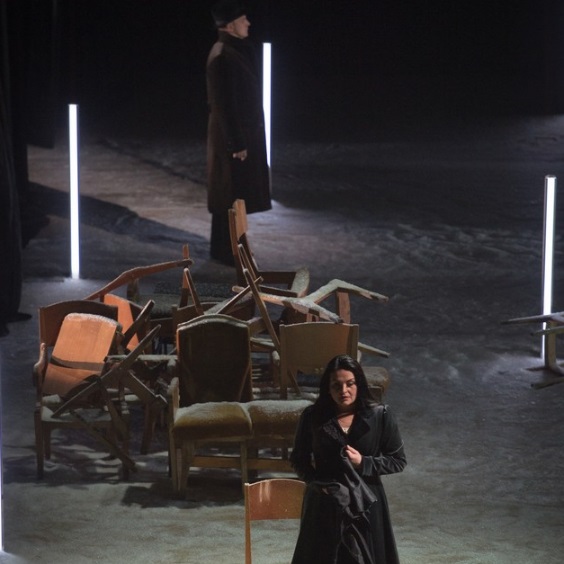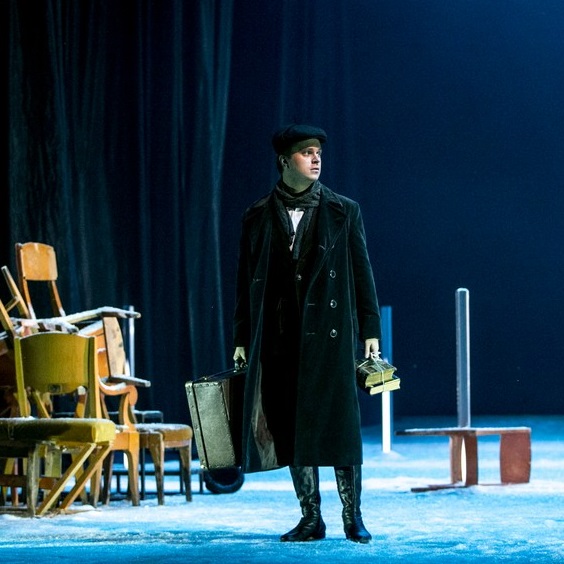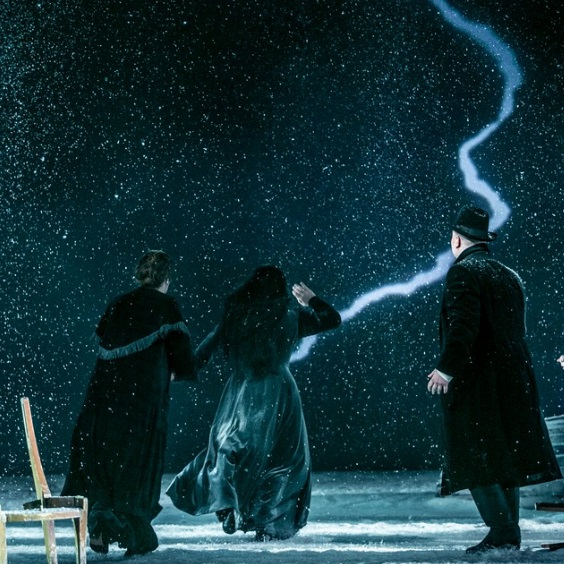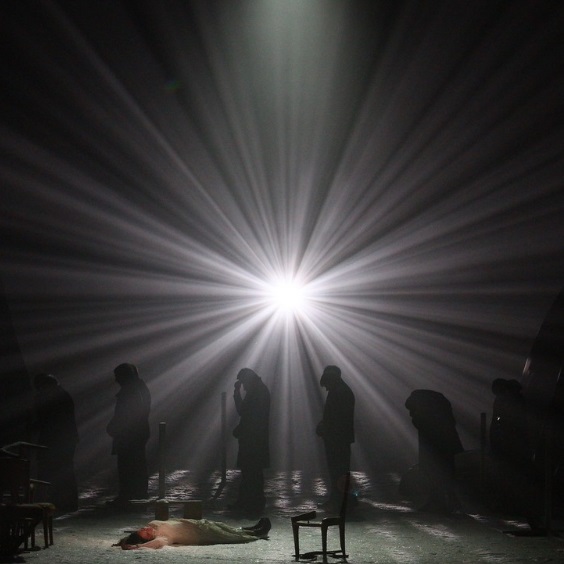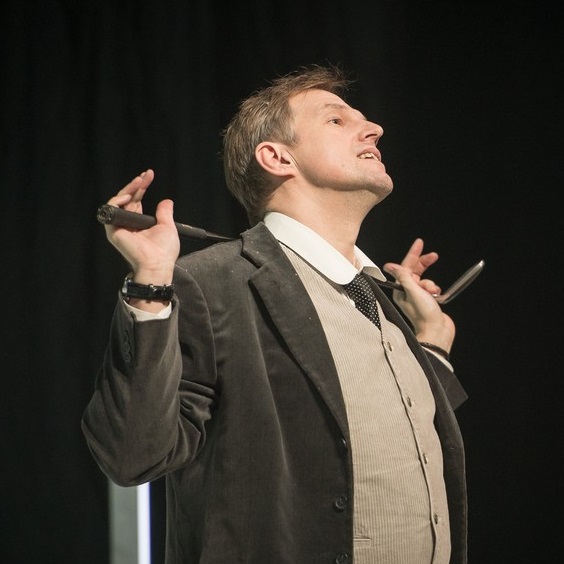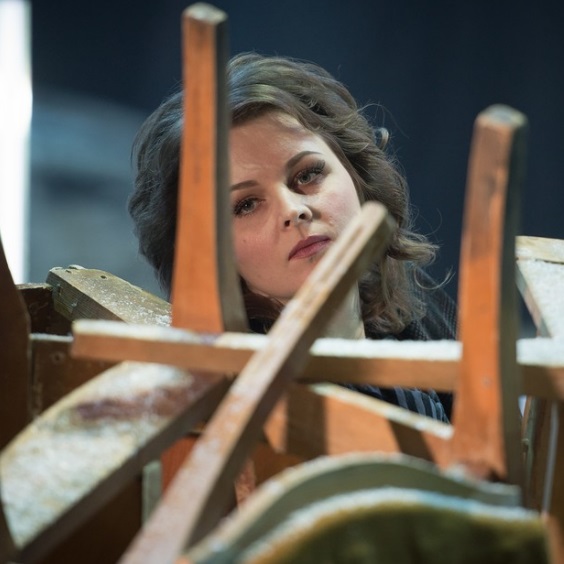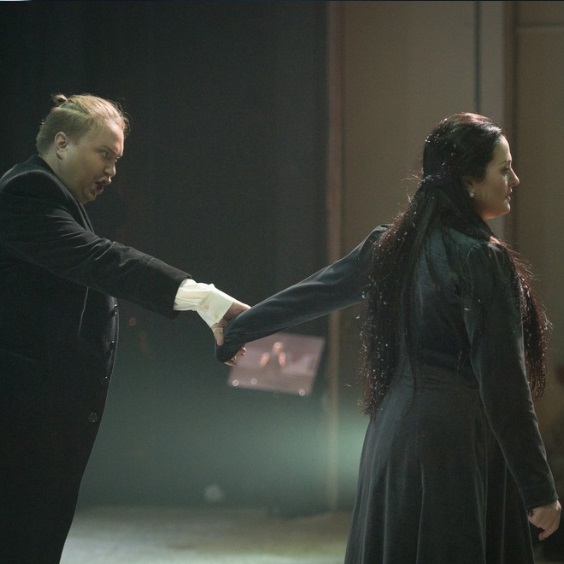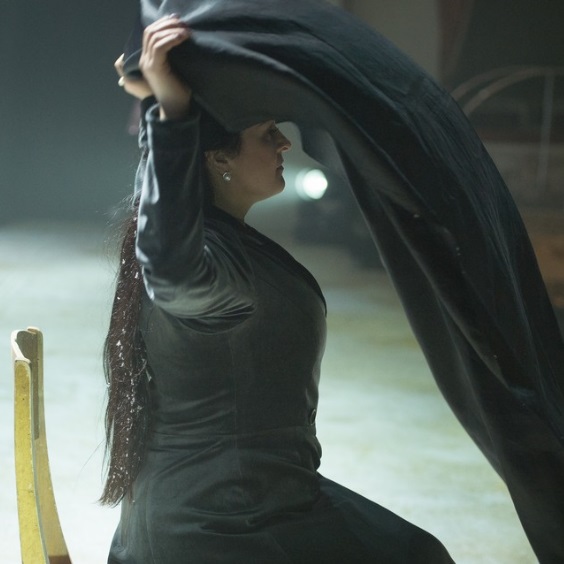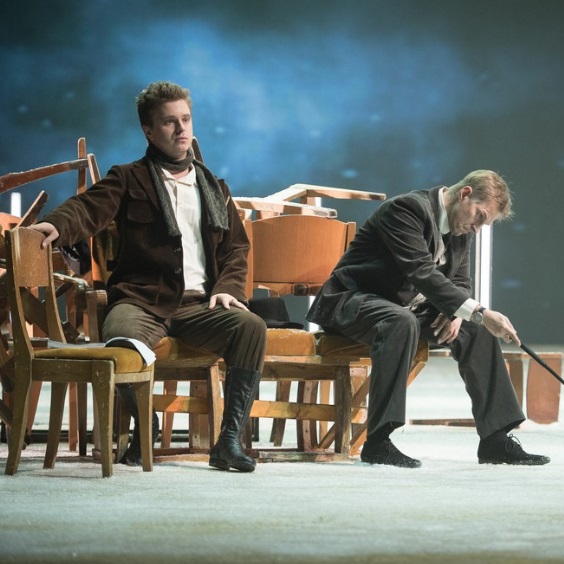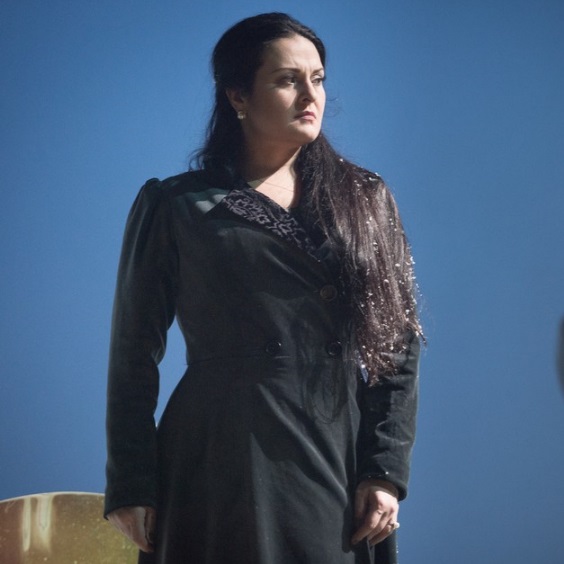The Storm
opera Kát'a Kabanová by Leoš Janáček in three acts

 performed in Czech (with Russian surtitles)
performed in Czech (with Russian surtitles)
Cast
Leoš Janáček’s opera, based on the play by Alexander Ostrovsky, was originally named Káťa Kabanová by the composer but has returned to the playbill with its original literary title. Lauded as an undisputed musical masterpiece of the 20th century, it encompasses a wide range of emotions. The expressive music not only evokes notions of love, fear, despair, and dreams of happiness, but also foreshadows the monumental changes to and devastation of a world based on prejudice and self-delusion.
A small Russian town on the Volga. Boris, a nephew of the rich housekeeper Dikoj, has a troublous life: in order to collect his inheritance, he must tolerate Dikoj’s tyranny. Boris confesses to Kudrjáš that he is secretly in love with a married woman, Kát’a Kabanova. Kát’a’s husband, Tichon, is under his mother’s thumb: Kabanicha hates her daughter-in-law and oppresses her son.
Kabanicha and members of her household return from vespers. Kabanicha berates her son for his lack of attentiveness. He tries to please her. At a sharp reply from Kabanicha, he and his wife Kát’a try to tell the old woman they love and respect her. Tichon’s temper snaps at being told he spoils his wife. Kabanicha orders Tichon’s to go Kazan for business.
At Kabanov’s house, Kát’a tells Varvara how free and happy she felt as a child, constantly dreaming. Even now, she admits, she has dreamed of having a lover. Varvara figures that Kát’a is in love with Boris. Varvara sympathizes with Kát’a: she has also broken her mother’s ban and goes out with Kudrjáš.
Kát’a fights against her love. She wants to stay faithful to her husband and begs him not to go to the town of Kazan, but in vain. At least, she asks him to make her swear to speak to no strangers during his absence.
Act II
Kabanicha criticizes Kát’a for not making an ordinary display of grief over Tichon’s absence. After she has left, Varvara shows Kát’a the key to the far part of the garden: she plans to meet her lover there and hints that Kát’a might want to do the same, giving the key to her. Kát’a hesitates but decides that fate has willed it: she is going to meet Boris.
At the secret date, Boris proclaims his love to Kát’a. Unable to hide her feelings, Kát’a embraces him.
Act III
Two weeks have passed. An approaching storm drives Kudrjáš and his friend, Kuligin, to a shelter, where they are joined by other strollers. When the rain lets up, they all leave the shelter, and Kudrjáš runs into Boris and Varvara. The girl reports that Tichon is back, and Kát’a seems out of her mind.
Kabanicha approaches with Tichon and Kát’a. Kát’a is frightened by the returning storm. With a burst of thunder, she confesses to Tichon that she has dallied with Boris during his absence and runs away.
Kát’a suffers in her repentance and humiliation, while Boris is about to leave for Siberia. Kát’a says goodbye to her beloved and throws herself into the Volga. Kuligin sees her jump and calls for help. Tichon rushes back, followed by Kabanicha, whom he blames for Kát’a’s death.
Premiere at the Mikhailovsky Theatre: 16 December 2010
Revival of the production: 20 November 2016
Musical Director of the production and Conductor: Peter Feranec
Stage Director: Niels-Peter Rudolph
Stage Designer: Volker Hintermeier
Costume Designer: Sue Bühler
Principal Chorus Master and Artistic Director of Chorus: Vladimir Stolpovskikh
Assistant to Musical Director: Valentin Bogdanov
Director of the revival: Margarita Kunitsyna-Tankevich
Assistants to Director of the revival: Elena Piskunova, Vyacheslav Kalyuzhny
Lighting: Alexander Kibitkin
Principal Pianist: Marc Vayner
Pianists: Maria Kopyseva, Maria Mikirtumova
Chorus Masters: Alexey Dmitriev, Sergey Tsyplenkov
Czech Language Consultant: Elena Kolomiytseva
Stage Manager: Olga Kokh

